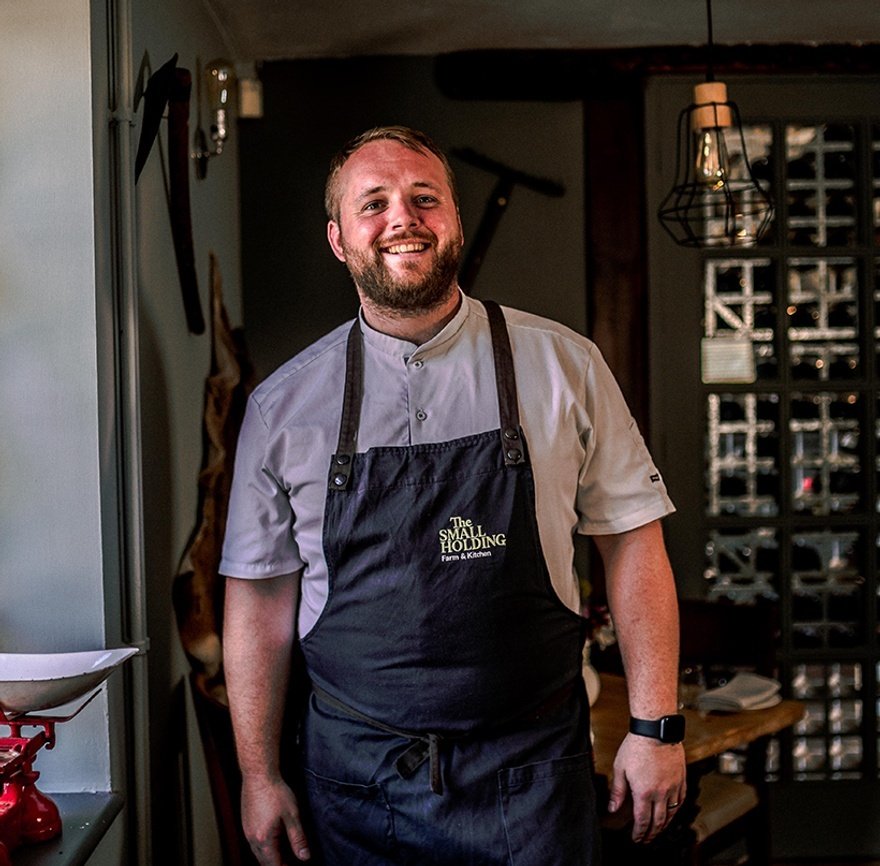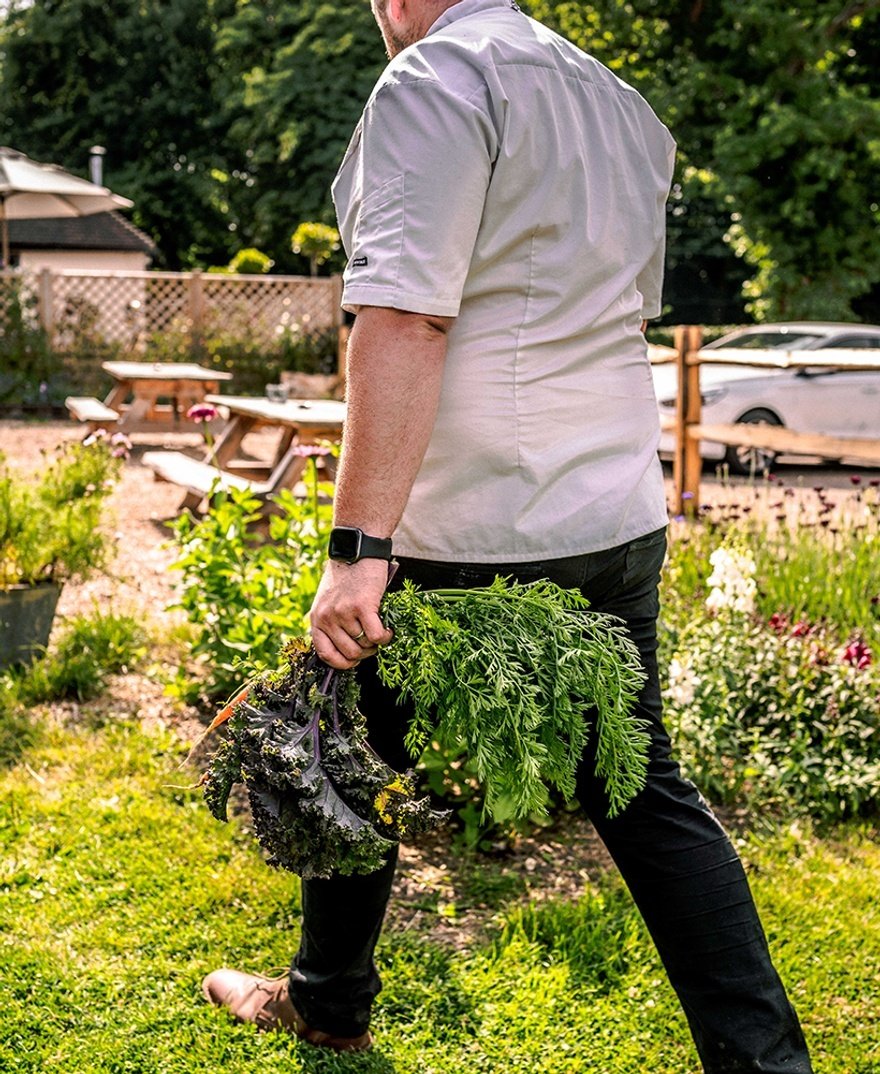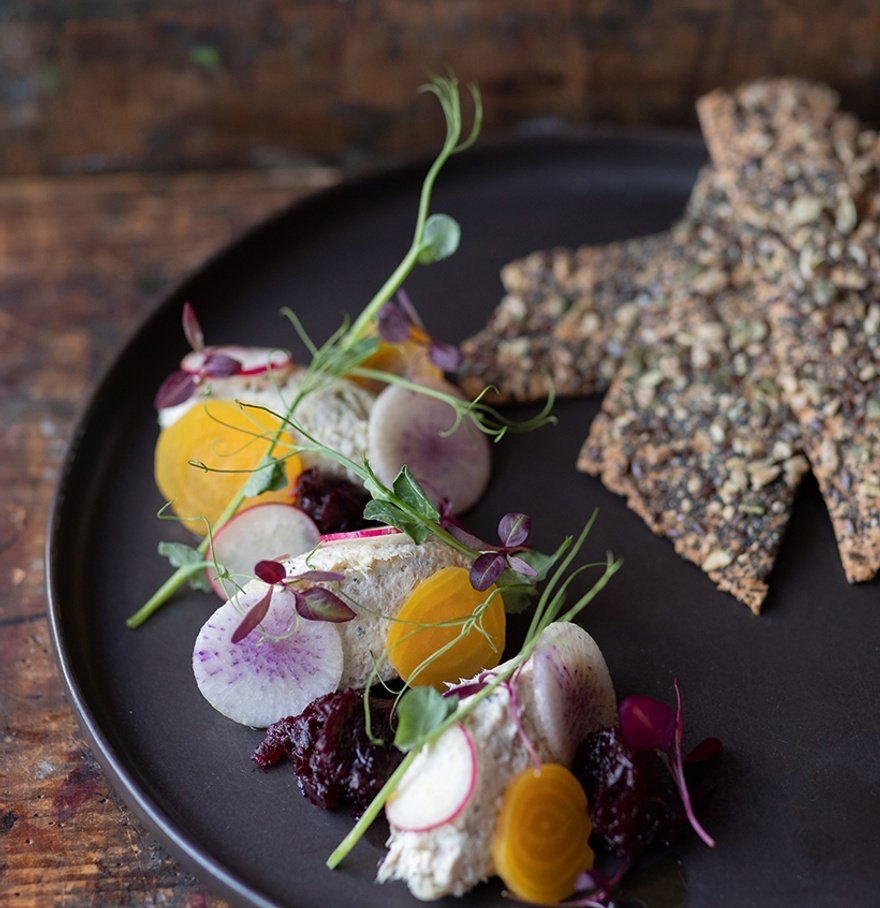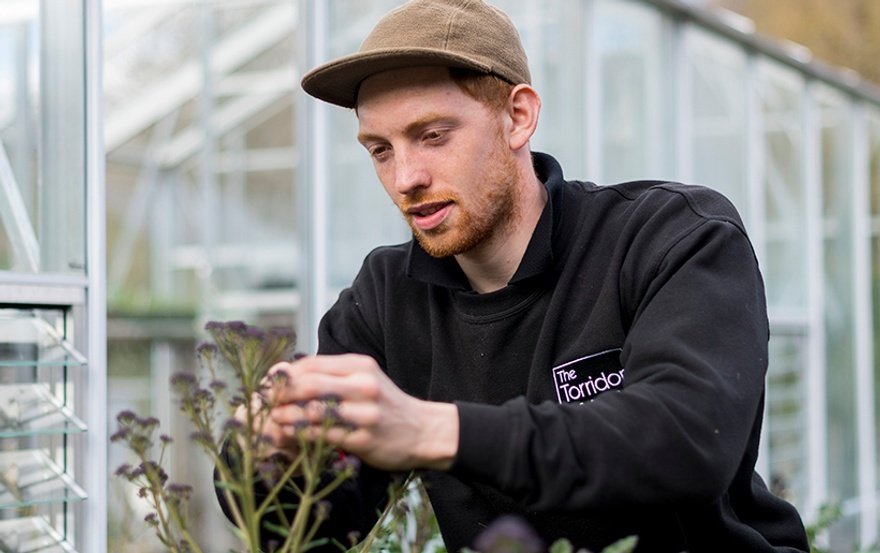Faced with little choice but to let their fields lie almost fallow during the lockdown, chef-gardeners are getting creative with pickles and preserves to see them through until they can open their doors once more. Stephanie Sparrow reports
The lockdown has meant that spring has become the fallow season for hotel and restaurant kitchen gardens across the country. Vegetable plots, herb gardens and greenhouses have been emptied, with the hope that they can be revived at a later date.
This has brought some tough decisions. At the Pig collection of country house hotels, renowned for its kitchen gardens, chief grower Ollie Hutson has been working quickly to reduce and shut down plots.
"Anything we had before the lockdown, such as seedlings from our nursery at Lyndhurst, will be planted, otherwise we are digging in manure, covering plots with membrane and putting them to bed," he says. "Anything we produce on-site – such as the eggs from our chickens – will be used to support our elderly neighbours and part-time caretakers."
Hutson had considered other ideas for the gardens, such as community farming, but was mindful of incurring manpower costs or creating non-essential travel between locations.
Although it seems selfish to say this during such a terrible time, it is pretty heart-breaking to have to let the gardens go after putting a decade into growing and developing them
"I wish we could do more to help," he adds. "And although it seems selfish to say this during such a terrible time, it is pretty heart-breaking to have to let the gardens go after putting a decade into growing and developing them."
Other key players in the farm-to-fork movement have had to adapt too. In Cornwall, former head chef and now renowned kitchen gardener Ross Geach had been preparing for a pattern of sowing which he attunes to demand. "So when Padstow, for example, is at its busiest in the tourist season, chefs know that my produce will be coming in daily," he says.
Geach had thousands of seedlings on order or ready to plant at his Padstow Kitchen Garden on the family farm in Trerethern in north Cornwall, including lettuce, kale and cabbages. He now aims to maintain continuity of sowing in case of reopenings, without creating gluts. Beds have been reduced and he offers a veg box delivery scheme to local residents.
Geach is also developing restaurant products for the future. "Thinking of the months ahead, I am exploring how I could use my greens to make 3kg bags of kimchi, and whether to pickle the padron peppers that are due for the polytunnel," he says.
Prepare to pickle
Pickling, normally an autumnal activity, is a saving grace for anyone managing fresh produce – not only does it offer a chance to prevent waste, it also creates a food story to share with future customers.
This is the approach of Will Devlin, chef-owner of the Small Holding, near Cranbrook in Kent. Devlin and his brother Matt run a one-acre plot and 40-acre farm to supply their 24-seat restaurant with meat and produce. Since the lockdown they have rejected their initial plan to sell to the public ("there are amazing farm shops in the area", says Devlin, "and we didn't want to cause non-essential travel"), to focus on the lambing season and to plant fruit and vegetables, such as potatoes, peas, beans and strawberries.
Pickles were an established part of the menu at the Small Holding and Devlin is using his quiet time to create a "back catalogue" of preserves, currently lifting beetroots and fennel.
"For example, we had ‘carrots, yogurt, chutney' on the menu", he says. "This featured fermented carrots from spring 2019 with pickled and fresh carrots together with yogurt and chilli. We like to showcase the ingredients with lots of colours and textures."
This is also a time for menu development and he is using his prep kitchen to create pickling vinegars from a vinegar mother.
When the lockdown is lifted, and if we can get the team back, it will only take us a week or so to get back on track
"When we closed I used some of the remaining wine with the vinegar mother. We made a lovely Kit's Coty Chardonnay vinegar from Chapel Down, the Kent vineyard."
As spring progresses Devlin is busy with charcuterie; he has already cured hams and made fennel salami.
"When the lockdown is lifted, and if we can get the team back, it will only take us a week or so to get back on track", he says.
Scandi style
Pickling complements the philosophy of restaurants like the Small Holding, which celebrates home-grown and local produce, but at Mathilde's Café in Grasmere in the Lake District, it evokes the Scandinavian heritage of owner Becky Heaton Cooper.
"The pickling recipes we use have been in my family for generations," she says, "and I remember making them with my dad."
Heaton Cooper named the café after her Norwegian great-grandmother Mathilde Valentinsen, the wife of celebrated landscape painter Alfred Heaton Cooper.
Mathilde's has an average of 56 covers supplemented by outdoor seating in more conventional times. The café is next to the Heaton Cooper Studio, her art gallery and shop.
Pickled items, including radishes, cucumber, fish and candied walnuts, have a starring role on the Scandinavian-style menu, which is served from breakfast through to late afternoon. Homemade sauerkraut, served with Swedish meatballs and lingonberry compote is a customer favourite.
"We salt the cabbage with aromats and leave at 18ºC for 10 days then store in airtight bags to continue the fermentation process for around eight to 10 weeks before serving," says Heaton Cooper.
A palatable pickling liquor is the basis of all good pickles (see panel). Heaton Cooper's recipe of warmed apple cider and sugar is milder than a traditional Nordic pickling solution.
"In Scandinavia they would use a solution that is more acidic in comparison, as they would often use a very strong vinegar," she says.
Heaton Cooper is disappointed that her furloughed team will miss the chance to go foraging. "Wild garlic is in abundance now. It is a pity to miss it. Last winter we served pickled wild garlic, wild strawberries and sea buckthorn that we had foraged and infused in gin."
When restrictions are lifted, Heaton Cooper has a well-stocked storecupboard to draw on. "We have vast amounts of pickles ready," she says.
Preserving a trend
Will the temporary scaling back of kitchen gardens diminish the popularity of locally grown produce? Probably not, say chefs and suppliers.
"Home-grown capability is a mark of quality," says managing director of Hartley Botanic Tom Barry. "Guests not only expect the best chefs, they also want the freshest, most seasonal and thoughtfully sourced produce – embodied in its purest form when restaurants produce ingredients themselves," says Barry, whose company has built greenhouses for hotels nationwide.
Devlin agrees, adding that the current pandemic has increased consumer interest in seasonality, minimised waste, and respect for locally sourced ingredients.
"Restaurants with a philosophy like ours will stand the test of time because we are honest and real," he says.
Britain in a wartime pickle: Stephanie Sparrow delves into a historical treasure fit for this time
Can pickling save British food supplies and help defeat the enemy? This was certainly the hope in July 1940 when* Home Pickling**, written by vinegar guru Henry Sarson, backed by the new minister of food Lord Woolton, was published.
His guide to preserving all manner of foods in pickles, chutney and ketchups was aimed at a group he termed "the nation's housewives". My beloved late grandmother bought the revised 1942 edition, now my copy.
Woolton, who implemented food rationing and free school meals, regularly pleaded with the nation to use vegetables as a mainstay of their diet and to pickle to prevent waste.
Sarson's determination to get Britain pickling leaps off the page. He recommends stainless steel saucepans, praised as "the latest addition to kitchenware", but is less fussy about containers, as long as they have been washed in hot water, soda and soap, adding: "avoid like the plague any jar that some male member of your family has used for his paint-brushes. Turpentine and paraffin possess the most persistent odours."
Unsurprisingly, Sarson recommends malt and spirit vinegars, claiming that "the delicate flavour of wine vinegar is quite lost on pickles".
This is the opposite of modern tastes. Today's palates prefer soft-flavoured vinegars, with regular picklers such as Becky Heaton Cooper at Mathilde's café preferring white wine, basic white or an apple cider vinegar.
In Sarson's opinion, most fruits and vegetables can be pickled, or fish and meats potted, including sprats, smelt or "old partridges, pigeons or rabbits". Some recommendations are quaint, others recall the last days of Empire, and a few would appeal to hipster tastes.
Sarson would have us prepare a no-nonsense marrow and onion pickle, or bizarrely, a concoction from tinned peaches. He shares spice-laden recipes from the East India Company, ideas for Chow-Chow, known then as Chinese piccalilli, and suggestions for blackberry, grape and horseradish ketchups.
I followed his recipe for beetroot, allspice and raisin chutney, choking on the fumes of malt vinegar. Despite Sarson's caveat that it would be sweet, a beetroot earthiness was dominant and it had to be served with extra sugar.
Home Pickling by Henry Sarson, with a foreword by the Right Hon Lord Woolton. Decorations by Renn. Published by C Arthur Pearson, July 1940. Revised June 1942.
Wellbeing in the garden
At the Torridon in Wester Ross, managing director and joint owner Dan Rose-Bristow is maintaining a downscaled version of the kitchen gardens. His gardener Tom Stephenson lives at the 58-acre Scottish resort, and he will be helped by head chef Paul Green as well as some of the team who are unable to return to their families abroad.
"In this time of uncertainty, pain and fear, we have 22 people, 15 of whom cannot return to their home countries in mainland Europe, and so are staying on with us while they move onto furlough," he says. "I have offered them board and meals, and I also need to consider their health, wellbeing and physical exercise," he says.
"They are free to pass their time as they wish – some are using online language learning, for example – but others have asked if they can help in the garden," he explains.
"This is not about economic gain for us, but an offer to them from a therapeutic and health perspective, so that we have a fit and occupied community. I very much take responsibility for them while they are here."
An extra staff garden is being created in a separate allotment area for anyone from the resident community who wishes to learn more about growing, and potato planting has been increased to boost the Torridon's self-sufficiency.
While sensitive to the ongoing crisis, Stephenson and Green are maintaining morale. Stephenson shares gardening tips with the public on the hotel blog, and head chef Green also invites the team to forage with him in the grounds.
He is upbeat about sharing knowledge and skills: "People who may not usually get the chance to experience the garden now have the opportunity to do so. We are turning this negative into a positive one by literally sowing the seeds for the future," he says.
Main image: Shutterstock
Continue reading
You need to be a premium member to view this. Subscribe from just 99p per week.
Already subscribed? Log In













